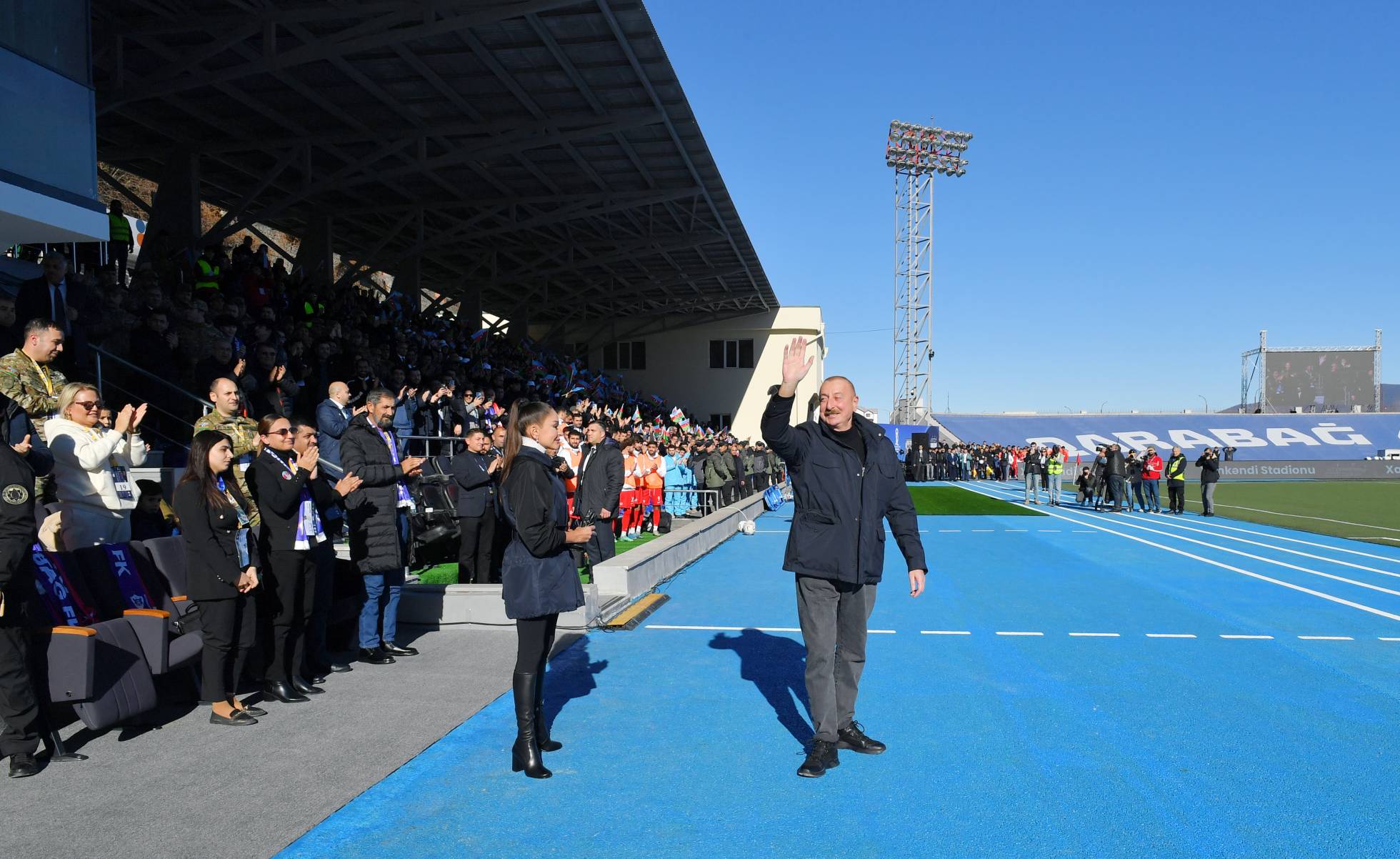Around 50 million Azerbaijanis living in dozens of countries on five continents from America to Australia are celebrating the Solidarity Day of World Azerbaijanis on December 31, a day that is recognized as the symbol of the nation’s solidarity.
The worldwide solidarity celebration of Azerbaijanis stems from the events that took place in 1989, when Azerbaijanis living in what was then the Soviet Union of fifteen republics, and Iran united with their relatives despite all hindrances and prohibitions. Hundreds of Azerbaijanis flocked from Nakhchivan, an exclave of Azerbaijan on the country’s southwest corner, to the border with Iran and dismantled the security wires to put an end to years of separation.
Azerbaijan’s former President Heydar Aliyev signed a decree in 1993 to officially mark December 31 as the Solidarity Day of World Azerbaijanis.
Today, ten million Azerbaijanis live in the Republic of Azerbaijan, the largest and strongest country in the South Caucasus region, where Georgia and Armenia are also located. The largest number of Azerbaijanis living outside the Republic of Azerbaijan is in Iran which accounts for up to 30 million, according to various sources. Türkiye comes in at number two with 3 million, while about 2.5 million Azerbaijanis reside currently in Russia.
Around one million Azerbaijanis reside in the United States and a half million Azerbaijanis live in Georgia. Germany, the United Kingdom, Ukraine, Canada, Israel, France, Sweden, the Netherlands, Hungary, Kazakhstan, Uzbekistan, Turkmenistan, Iraq, Syria, Egypt, Jordan, Pakistan, India, China, Japan, Brazil, and Australia are home to more than two million Azerbaijanis overall.
This year's Solidarity Day celebrations come on the heels of Azerbaijan's restoration of its sovereignty in the entire Karabakh (Garabagh) region, an internationally recognized territory of Azerbaijan which was occupied by Armenia as a result of the First Karabakh War in 1991-1994.
The Armenia-Azerbaijan conflict took a violent turn on September 27, 2020, when Armenia’s forces deployed in occupied Azerbaijani lands shelled military positions and civilian settlements of Azerbaijan. During counter-attack operations, which lasted 44 days, Azerbaijani forces liberated over 300 settlements, including the cities of Jabrayil, Fuzuli, Zangilan, Gubadli, and Shusha, from a nearly 30-year-long illegal Armenian occupation. The war ended with the signing of a statement on November 10, 2020, under which Armenia also returned the occupied Aghdam, Kalbajar, and Lachin districts to Azerbaijan.
Although the statement put obligations on Armenia to withdraw its military formations from the Karabakh region immediately after the 44-day war, 15,000-strong Armenian troops remained within Azerbaijan's borders posing serious threats to the country's territorial integrity and sovereignty. Baku has repeatedly called on Yerevan to deliver on its legally binding obligations. However, Armenia continued to politically and militarily back the illegal separatist regime and armed personnel in the Karabakh region.
Ultimately, on September 19, Azerbaijan launched anti-terror measures to disable Armenian army forces and military infrastructure in the Karabakh region. The operation came on the heels of the intensifying Armenian attacks on the Azerbaijani positions and a mine incident in the Khojavand district that killed four Azerbaijani police officers and two road construction workers. By the time of the cessation of hostilities on September 20, the Azerbaijani military disabled artillery systems, radio-electronic warfare, military equipment, ammunition depots, military strongholds, and shelters of the Armenian army formations stationed in the Karabakh region.
In addition, more than 90 combat posts and strategically important positions of the Armenian military formations were taken under control during the one-day operation. Seven military vehicles, 4 mortars, 1 tank, 2 infantry fighting vehicles, as well as a large number of weapons and ammunition were also seized. The Azerbaijani troops targeted only military facilities throughout the hostilities avoiding any strike on civilians and civilian infrastructure.
The counter-terrorism measures concluded after the Armenian military formations agreed to full disarmament by laying down arms, handing over the military hardware, and withdrawing from their battle positions and military outposts. Armenia's armed forces were also obligated to leave Azerbaijani territory, and illegal Armenian armed groups were to be disbanded.
On September 28, the illegal Armenian separatist regime in the Karabakh region announced its self-dissolution. On October 15, President Ilham Aliyev hoisted the state flag in the city of Khankendi, the Karabakh region, announcing the restoration of sovereignty across the entire territory of Azerbaijan.







 Azerbaijan has been recognized as one of the safest countries in the world, ranking 90th among 163 countries on the Global Terrorism Index 2025 (GTI).
Azerbaijan has been recognized as one of the safest countries in the world, ranking 90th among 163 countries on the Global Terrorism Index 2025 (GTI).
 The Azerbaijani Defense Ministry has reported ongoing shelling of its army positions by Armenian forces since last week.
The Azerbaijani Defense Ministry has reported ongoing shelling of its army positions by Armenian forces since last week.
 On Monday, Israel awarded gas exploration licenses to a consortium that includes Azerbaijan’s energy conglomerate SOCAR, bp, and Israel’s NewMed En...
On Monday, Israel awarded gas exploration licenses to a consortium that includes Azerbaijan’s energy conglomerate SOCAR, bp, and Israel’s NewMed En...



